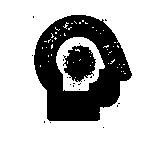
The core belief that drives my practice…
Is that every person’s identity is layered and multifaceted, shaped by culture, history, and experience. Healing starts when you stop trying to fit into someone else’s version of “normal” and start embracing your own complexity.

If my therapy approach were a metaphor…
Filling a blank page with color is a lot like therapy; each stroke adds depth, shade, and vibrancy, slowly transforming empty space into a vivid reflection of who you are. Just as colors bring a drawing to life, therapy can reveal the person you’ve been becoming all along.

I’m the therapist most likely to…
Invite you to lean into discomfort without turning away. I’ll notice the places you hesitate or protect yourself, and gently explore why. I want to call out the unseen dynamics, and to walk alongside you as you reclaim your narrative.

The impact I strive to have is…
To help you recognize the richness in your story; along with the parts that don’t always get noticed.

Highlights
APPROACH & FRAMEWORK
Top Approaches
AREAS OF CARE
Top Areas of Care
Q & A
BACKGROUND & IDENTITY
What led me to this work wasn’t just education—it was life. I’ve seen how relationships can harm, and how they can heal. I’ve experienced what it means to feel invisible, and what it means to be truly known. In my experience, you never come out of a relationship the same way you went in. You grow, you morph, you change—all through connection and the reflection that happens in relationship with others.
As someone who has had to navigate the tension between how I see myself and how the world sees me, I understand what it means to carry unseen stories and layered identities. I came into this field through experience first—before I ever had the tools or titles. I’ve always been drawn to the moments when someone feels deeply understood. I’ve been fortunate to experience relationships in my own life that allowed me to feel fully human. That sense of acceptance shaped how I show up for others; constructing a climate where you can be met with honesty, warmth, and authenticity.
COMMUNITY & CULTURE
OUTSIDE THE SESSIONS
EDUCATION/TRAINING
I hold a Master’s in Clinical Mental Health Counseling and bring experience across residential, community, and school-based settings. My work has included supporting foster youth, families, LGBTQIA+ individuals, high-risk teens, and parents or pregnant individuals navigating financial hardship. I’ve walked alongside people facing a wide range of challenges; from systemic and interpersonal trauma to faith deconstruction and religious harm, as well as those living with depression, anxiety, autism, ADHD, and more.
PROFESSIONAL INTERESTS AND PROJECTS
SHARES
PERSONALITY FRAMEWORKS AND OTHER FUN STUFF
TESTIMONIALS
“Working alongside Emily Riggs has been a true privilege. With a background as both a wilderness therapy guide and jail-based therapist, she brings a grounded, embodied approach to her work that’s deeply trauma-informed and rooted in social justice. Her skill in blending CBT, DBT, somatic practices, yoga therapy, and nervous system regulation creates a space where clients feel seen, empowered, and safe to do meaningful work. She has a rare ability to navigate conflict with clarity and compassion, and consistently advocates for her clients with unwavering integrity. Intuitive, steady, and deeply attuned. She brings a calming presence into any room, and clients often reflect how deeply seen and safe they feel in her care, Emily is not only a skilled clinician but a powerful healing presence in any setting.” -Katie Wagner, LSW, LAC, former colleague
“Emily is not just a competent practitioner but a transparent one who will answer all your questions and help you feel at ease in moments of discomfort whether tending to pain in your body or your heart, or both at once. Confident, knowledgeable, and humble, she listens and creates coherent and relevant exercises plans to aid in your healing. Couldn’t recommend her more!” -Ruthie, Previous Yoga Therapy client
“Emily is a very passionate, down to earth, and caring therapist. She has a very grounded energy that makes her clients feel safe and comfortable. Emily prioritizes somatic and nervous system practices to help people reconnect with their bodies. Emily makes therapy relatable and fun, while taking feedback from clients on how to get the most out of their sessions. She views therapy from a social justice lens, often advocating for clients who experience oppression or other forms of discrimination. Emily isn’t afraid to speak up for her clients and help them navigate systems and find solutions to their problems.” -Chelsea Steck, LCSW, LAC, former colleague

